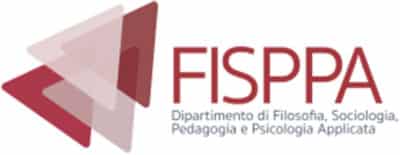
The Master’s Degree in Quantitative psychology prepares psychologists and professionals to measure, assess and analyse psycho-social variables, in order to plan and conduct high-level research activities and develop and validate survey tools within the psycho-social field.
The course provides knowledge on quantitative psychology, statistics and computer science, in order to train professionals with a high multidisciplinary technical profile.
The purpose of this Master’s Course is to train professionals capable of measuring psycho-social variables in an effective way, by identifying the most suitable and innovative surveying methods, and by treating the data collected through automated calculation systems and analysis methods that allow transforming them into useful and communicable information.
The course units of the Master’s Degree in Quantitative psychology are organized in twelve modules, presented below, to acquire specific technical competencies to plan and conduct high-level research activities and develop and validate survey tools within the psycho-social field.
The Master’s Degree in Quantitative psychology is addressed to psychologists and professionals interested in the study and analysis of psychological and social variables. Professionals will be able to work in organizational, clinical, legal, social and market contexts. The figures formed can work in many different contexts, such as in clinical, market survey, organizational assessment, legal, and social research fields.
Their line of work can include companies interested in psycho-social assessments, behavioural and opinion surveys, market surveys, or local or tertiary bodies that implement and manage social projects. Other job opportunities may include social research companies or national and international bodies that study and manage psycho-social variables.
The Master’s Degree in Quantitative psychology provides training on:
Module 1: Psycho-social research statistical and methodological elements
Logic, research methodology and measuring of psycho-social variables.
Module 2: Data collection techniques
Neuro-psychological measurements and new data collection methods.
Module 3: Factor analysis and structural equation models
Factor analysis, observed and latent variable models, mediation and moderation effects.
Module 4: General mixed-effect models
Linear and general linear models and their extension to mixed-effect models.
Module 5: Longitudinal models
Longitudinal surveys, cross-lag models, growth curves and multi-level longitudinal models.
Module 6: Programming and applications in R
Programming elements, selection and use of the main bundles.
Module 7: Bayesian statistics
Bayesian inference and statistics.
Module 8: Implicit measures
Experiment programming and index calculation.
Module 9: Test theories and techniques
Selection, use and development of psycho-social assessment tools.
Module 10: Item response theory
Item response theory: theory and applications.
Module 11: Knowledge space theory and cognitive diagnostic models
Formal assessment models. Theoretical fundamentals and applications.
Module 12: Medical statistics
Statistical indicators in the healthcare sectors; statistical survival analysis models; epidemiological study plans and clinical trials.
The general ranking of merit for the academic year 2025/26 will be published on the Italian page of this Master according to the timing provided in the Call.
Information
FAQ
It will be divided into 210 hours of in-class lessons, 90 hours of distance learning and 200 hours of stage/project work.
Lessons will be held on Friday and Saturday (1 or 2 per month).
Also, there will be an intensive week with daily educational activities.
Classes will be held at the University of Padua.
Distance learning hours will include different activities, such as, by way of example, exercises, audio-video materials (video-lessons), and educational materials provided by the professors. Distance learning will be provided in asynchronous mode, without any set attendance times.
The Master’ includes a 200-hour traineeship (8 CFU): the traineeship can be done at companies or national/international bodies affiliated with the University of Padua. The traineeship can be replaced with an individual project work. This activity entail the preparation of a research paper created by the attendee with the topics covered during the course. The project work replaces the traineeship, but not the final dissertation.
Unfortunately, no scholarships will be awarded. However, there will be a €500 study prize (including charges to be paid by the Body). The prize will be assigned to the attendee presenting the best final dissertation, at the Committee’s unquestionable judgement (presided by the Master’s Director). The following criteria will be considered: innovation, applicative repercussions, interdisciplinarity, precision and accuracy in presenting the dissertation and bibliographic research.
The Master will be divided into 300 of lessons (210 hours of in-class lessons, 90 hours of distance learning) and 200 hours of stage/project work. A minimum attendance of 147 hours of in-person lessons is required.

